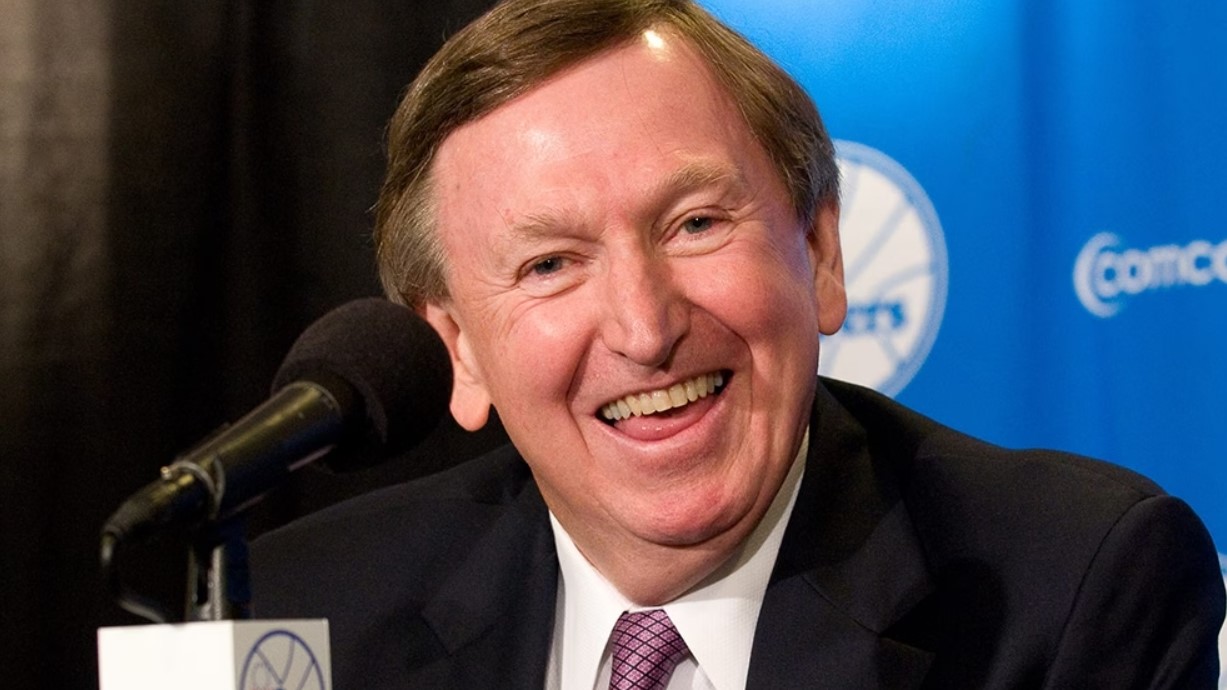Are you a follower of Rod Thorn? Are you searching on Google for How to contact him? What is the WhatsApp number, contact number, or email id of Rod Thorn? What is the hometown and residence address of Rod Thorn? Who is the Contact Agent, Manager Rod Thorn? What is your Facebook, Twitter, or Instagram id of Rod Thorn? Find out all these things in our article below. Let’s look for Rod Thorn’s autograph details, including his autograph request address, autograph mailing address, and fan mail address.
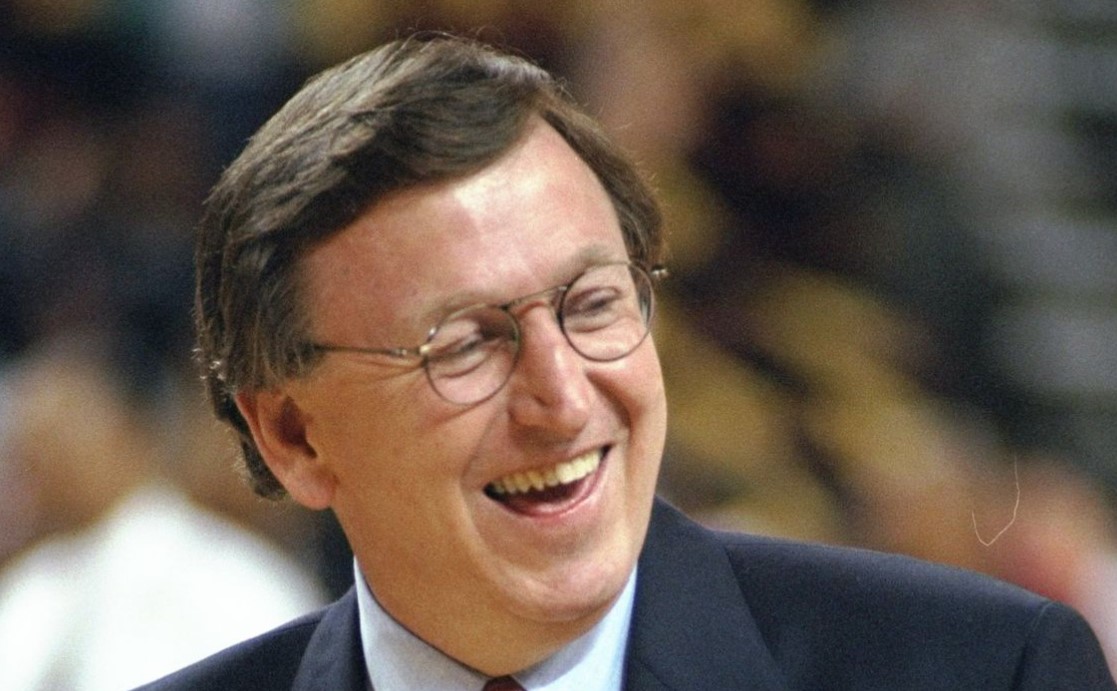
Rodney King Thorn is an American basketball executive born May 23, 1941. He is also a former professional player and coach and the Chairman of the Olympic Committee. His career has spanned over 50 years. Thorn was recognized for his contributions to basketball and was inducted into the Naismith Memorial Basketball Hall of Fame in 2018. After a high school basketball career at Princeton High School in his hometown of Princeton, West Virginia, during which he scored more than 30 points per game on average as a senior, Thorn garnered the attention of people around the country.
He was chosen for all-state teams three times and named to the High School All-American team twice. Before a brain accident forced him to take some time off from baseball, Thorn was a highly respected high school baseball star. However, the injury forced him to stop playing the sport for a while. Thorn was in the process of looking at universities when the West Virginia State Legislature approved a resolution declaring Thorn as a state Natural Resource. During this time, Thorn was looking at Duke University.
This is to encourage him to follow in the footsteps of West Virginia native Jerry West and enroll at West Virginia University. That’s precisely what Thorn did, too. Thorn was an undergraduate student at West Virginia University. He wore the number 44, also worn by Jerry West, who had just graduated from high school. He was a member of the West Virginia University baseball team for three years and was an All-American guard in basketball when he was at WVU.In the 1960–1961 school year, he was a sophomore (in his day, first-year students were not allowed to play varsity sports).
Thorn led the West Virginia Mountaineers men’s basketball team to a 23–4 record while playing for Coach George King, averaging 18.5 points, 12.5 rebounds, and 2.7 assists per game. The 1961–1962 academic year ended with 24 wins and six losses for West Virginia. The Mountaineers were invited to compete in the NCAA University Division basketball tournament in 1962, but Villanova eliminated them in the first round with a score of 90–75.
Thorn had a scoring average of 23.7 points and a rebounding average of 12.1. He was selected to the Second Team All-American team and won the Player of the Year award for the Southern Conference. Other members of the group were John Havlicek of Ohio State University. As a senior in 1962–1963, Thorn averaged 22.5 points and 9.0 rebounds per game. The West Virginia Mountaineers ended the 1963 NCAA University Division basketball season with a record of 23–8 and earned a spot in the playoffs. In terms of the NCAA.
Thorn contributed 17 points and seven rebounds in their victory against Connecticut (77–71), which they earned. Despite the Mountaineers’ loss against St. Joseph’s by a score of 97–88, it was a spectacular performance by Thorn, who scored 44 points in the game. After that, in his last game as a college student, he led his team to an 83–73 victory against New York University in the East Region third-place game. He finished with 33 points and nine rebounds. Thorn was again chosen for the Second Team of All-Americans, joining the likes of Bill Bradley and other players.
During his three years at West Virginia, Thorn participated in 81 games with an overall average of 21.8 points and 11.1 rebounds per contest. The Baltimore Bullets selected Thorn as the second broad choice in the NBA draft in 1963. The Bullets picked Thorn.
Thorn was a member of the NBA All-Rookie Team during the 1963–1964 season, during which he played for the Bullets under Hall of Fame Coach Slick Leonard. Thorn averaged 14.4 points, 4.3 rebounds, and 3.7 assists during that season.
Thorn was dealt with on June 18, 1964, after completing his team debut season. Thorn, Terry Dischinger, and Don Kojis were sent to the Detroit Pistons by Baltimore in exchange for Bob Ferry, a player who will be inducted into the Hall of Fame shortly, Bailey Howell, Les Hunter, Wali Jones, and Don Ohl. Thorn had a career year with the Pistons in 1964–1965, averaging 10.7 points, 2.9 rebounds, and 2.0 assists per game. Under the leadership of Charles Wolf (2–9) and 24-year-old player/coach Dave DeBusschere (29–40), the club failed not to qualify for the postseason.
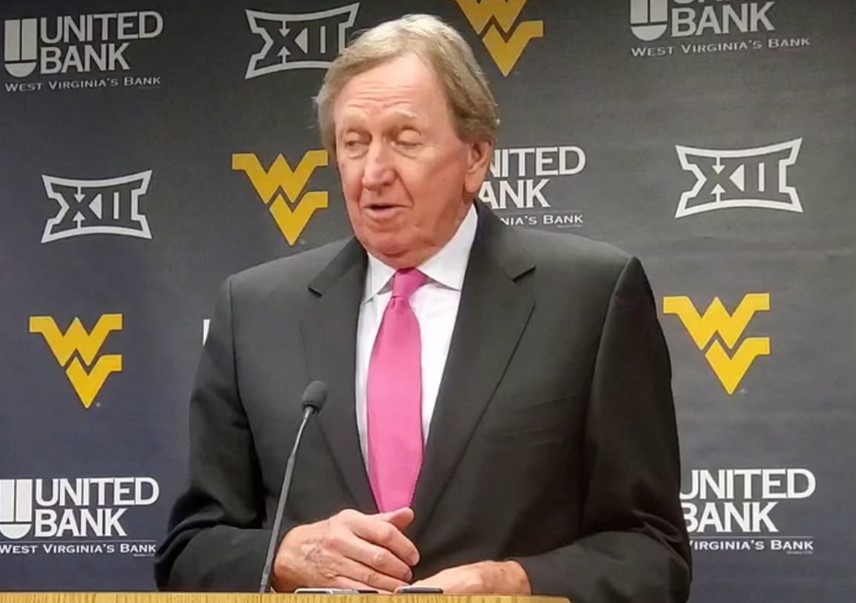
On December 24, 1965, Detroit traded Thorn despite averaging 13.9 points, 3.7 rebounds, and 2.4 assists. Thorn was traded to the St. Louis Hawks by the Detroit Pistons in exchange for John Tresvant and Chico Vaughn. In 46 games with the Hawks as a reserve, Thorn had an average of 8.8 points and 2.4 rebounds per game. Thorn’s playing time was cut down since he was on the same team as future Hall of Famers Richie Guerin (Player) and Richie Guerin (coach), Zelmo Beaty, Lenny Wilkens, and Cliff Hagan, as well as Joe Caldwell, Paul Silas, and Bill Bridges.
After advancing to the Western Division Finals with a victory over Baltimore by a score of 3–0, the Hawks ultimately fell to the Los Angeles Lakers by a score of 4–3. Thorn led the Hawks in scoring with 8.8 points per game and led the team in rebounding with 2.4 boards as they went on to a 39–42 record that season. During the playoffs, the Hawks prevailed over the expansion Chicago Bulls by a score of 3-0; however, in the Western Division finals, they were upset by the San Francisco Warriors, who Rick Barry and Nate Thurmond led. Thorn finished the series with a scoring average of 10.2 points per game.
In the National Basketball Association expansion draft on May 1, 1967, Thorn was selected by the expansion Seattle SuperSonics from the St. Louis Hawks. He played with the Seattle SuperSonics from 1967 through 1971, which marked the end of his career as a player. Thorn concluded the 1967–1968 season with a career-high 15.2 points per game while also averaging 4.0 rebounds and 3.5 assists for the expansion SuperSonics, who finished with a record of 23–58 under the direction of Coach Al Bianchi.
At 27, Thorn led the SuperSonics to a 30–52 record in the 1968–1969 season, averaging 11.5 points, 2.9 rebounds, and 2.8 assists.
Lenny Wilkens, Thorn’s teammate in St. Louis, joined the SuperSonics as a player and coach in the 1969–1970 season. In Wilkens’ first year as a coach, the SuperSonics finished with a record of 36–46. Wilkens would go on to win the NBA Championship with the SuperSonics in 1979, and he would continue coaching in the NBA until 2005, amassing a victory total of 1332 games throughout 32 seasons. Thorn played in 19 games but only averaged 2.9 points per game due to injuries.
Thorn’s playing career ended in the 1970–1971 season with the SuperSonics, for whom he appeared in 63 games off the bench and averaged 5.6 points and 2.9 assists. The SuperSonics ended the season with a record of 38–44. In the 1971–1972 season, Thorn worked as an assistant coach for the SuperSonics under Lenny Wilkens, his former Player and coach. The squad ended with a record of 47–35. Thorn was appointed as an assistant coach for the New York Nets of the American Basketball Association in 1973 by former colleague Kevin Loughery, who served as head coach then. The position paid $15,000 per year.
After that, the Nets, led by Julius Erving, were victorious in the ABA championship game in 1974. During the 1975–1976 ABA season, Thorn was appointed to serve as the head coach of the Spirits of St. Louis with then-star player Marvin Barnes. On the roster of the Spirits were other players like Moses Malone, Caldwell Jones, Mike D’Antoni, Gus Gerard, Maurice Lucas, Ron Boone, M.L. Carr, and Don Chaney. However, Don Chaney was sacked in December 1975 after the Spirits got off to a 20–27 start, and Joe Mullaney took over as head coach.
Thorn had problems with Barnes’s sense of discipline. Years later, Thorn remarked on how Marvin always arrived late for everything. “Marvin would come late for everything,” “You couldn’t rely on him in any way. He would tell me, “Every night, I’m going to give you 24 and 12.” It would be best if you spoke to the other people. He purposefully arrived late to demonstrate that “You do not control me.” It’s everything within my control.'”When the New York Nets franchise entered the National Basketball Association for the 1976–1977 season, Thorn was hired by Loughery as an assistant coach.
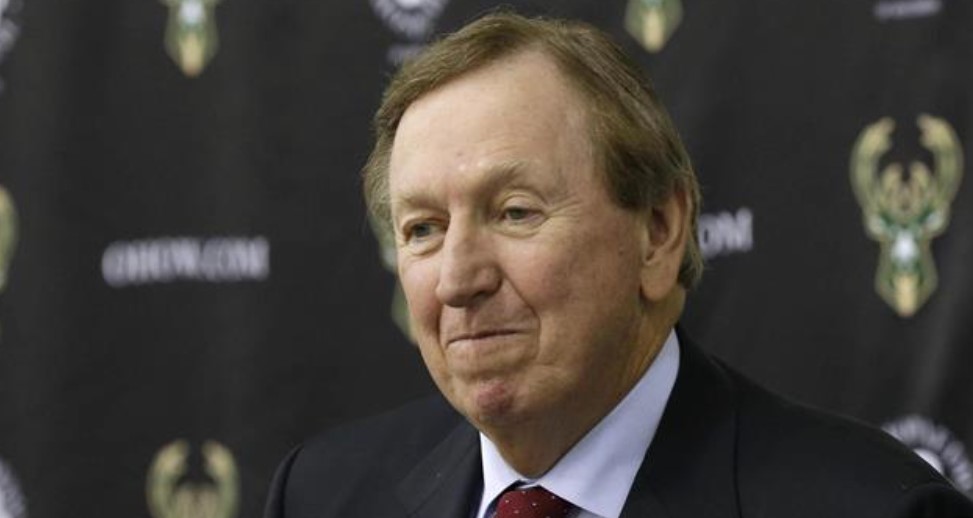
As a result of having no choice but to trade Erving to the Philadelphia 76ers, the squad was playing with a much-reduced roster. After the conclusion of the 1977–1978 season, Thorn resigned from his post to accept a job in the front office in Chicago. Thorn was hired by the Chicago Bulls in 1978 to fill the general manager job, and he remained in that position until March 1985. Thorn began its turnaround by hiring Jerry Sloan as head coach, drafting Reggie Theus, and inserting Artis Gilmore into the middle. Thorn took Sloan’s position on the bench during the last game of the 1981–1982 season (15–15).
In 1983, Thorn made Kevin Loughery, one of his old basketball friends and a coach with the Nets, his head coach.
Michael Jordan was notably selected by his club in 1984 as the third overall choice in the NBA draft. He was in charge of making that decision.[30] (he also picked track star Carl Lewis, with the selection on the eve of the 1984 Olympic Games, just for patriotic media reasons) The draft took place on the day before the Olympics.
Thorn rejected several potential trades involving the Bulls’ No. 3 selection in 1984. Jordan’s move to Philadelphia, where former North Carolina standout Billy Cunningham was coaching for the 76ers, resulted from some backroom dealing. Because the Bulls had previously taken shooting guards in prior selections and Thorn had just traded All-Star Reggie Theus, there was more conjecture that Thorn may choose Jordan’s North Carolina teammate Sam Perkins, who was drafted at No. 4. However, Thorn selected Jordan in the draft. From that point on, the Bulls had a solid foundation.
He presided over the Men’s National Team Selection Committee for USA Basketball in 1992, 1996, and 2000 respectively. The “Dream Team” for the Summer Olympics in 1992 (held in Barcelona) was put together, and the committee was also responsible for putting together the United States teams that won gold in the Olympics in 1996 and 2000. Thorn returned to the Nets organization on June 2, 2000, and in 2002, when the Nets made it to the NBA Finals for the first time in the franchise’s history, he was honored with the title of NBA Executive of the Year.
Rod Thorn announced be leaving the Nets’ organization during the summer of the 2010 Sea. The appointed president of the 76ers on August 11, 2010, succeeded Ed Stefanski in that role. Stefanski, however, continued to be affiliated with the club in his role as general manager. On October 18, 2011, just before a news conference was about to introduce the 76ers’ new ownership group, it was reported that Stefanski would depart the company and that Thorn would be the president and general manager.
Tony DiLeo was promoted to the position of general manager of the club in 2012, although Thorn was allowed to keep his position as president. After Stu Jackson decided down as President of Basketball Operations, the National Basketball Association (NBA) ounced0 in in2013 that Rod Thorn would be taking up those responsibilities beginning August 1. Nene Hilario of the Wizards was barred from participating in game 4 of the first round of the NBA playoffs on April 26, 2014, after being handed a suspension by Thorn on behalf of the NBA.
The rapid ascent of Giannis Antetokounmpo to the pinnacle of his sport has been meticulously chronicled. Jason Kidd, who was the head coach of the Bucks when the Greek Freak first began his ascent to prominence, is one of the key figures in this story. During an interview on SiriusXM NBA Radio, Rod Thorn discussed Jason Kidd’s impact on Giannis Antetokounmpo’s growth. The 2021 Finals MVP’s team, the Bucks, won the previous season’s NBA championship.
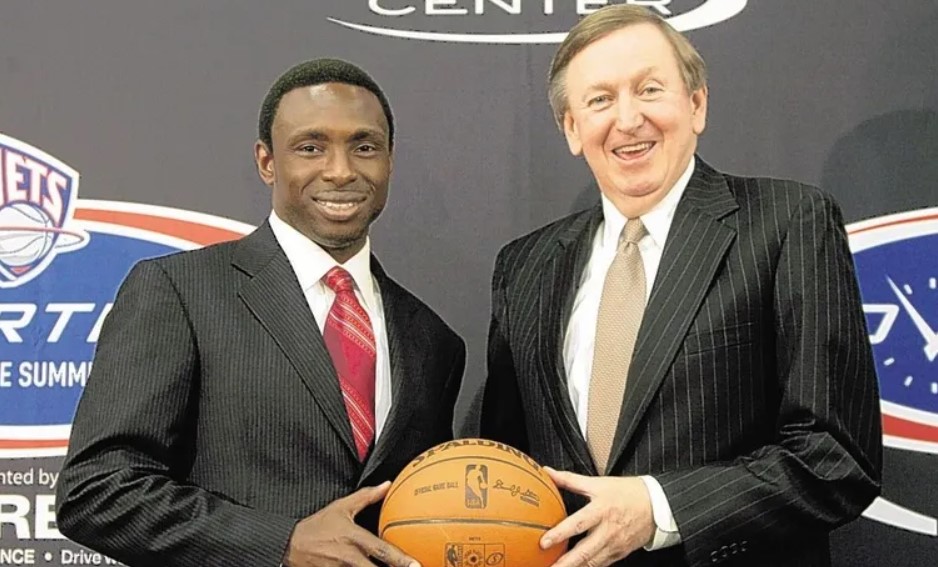
Rod Thorn Phone Number, Email Address, Contact No Information and More Details
Rod Thorn Addresses:
House Address:
Rod Thorn, Princeton, West Virginia, United States
Fanmail Address / Autograph Request Address:
Rod Thorn,
Princeton,
West Virginia,
United States
Rod Thorn Contact Phone Number and Contact Details info
- Rod Thorn Phone Number: Private
- Rod Thorn Mobile Contact Number: NA
- WhatsApp Number of Rod Thorn: NA
- Personal Phone Number: Same as Above
- Rod Thorn Email ID: NA
Social Media Accounts of Content Creator ‘Rod Thorn ’
- TikTok Account: NA
- Facebook Account (Facebook Profile): NA
- Twitter Account: NA
- Instagram Account: NA
- YouTube Channel: NA
- Tumblr Details: NA
- Official Website: NA
- Snapchat Profile: NA
Personal Facts and Figures
- Birthday/Birth Date: 23 May 1941
- Place of Birth: Princeton, West Virginia, United States
- Wife/GirlFriend: NA
- Children: NA
- Age: 82 Years old
- Official TikTok: NA
- Occupation: Basketball Player
- Height: 1.93 m
Facts
- Salary of Rod Thorn: $16 Million
- Net worth: $16 Million
- Education: Yes
- Total TikTok Fans/Followers: Not Known
- Facebook Fans: Not Known
- Twitter Followers: Not Known
- Total Instagram Followers: Not Known
- Total YouTube Followers: Not Known
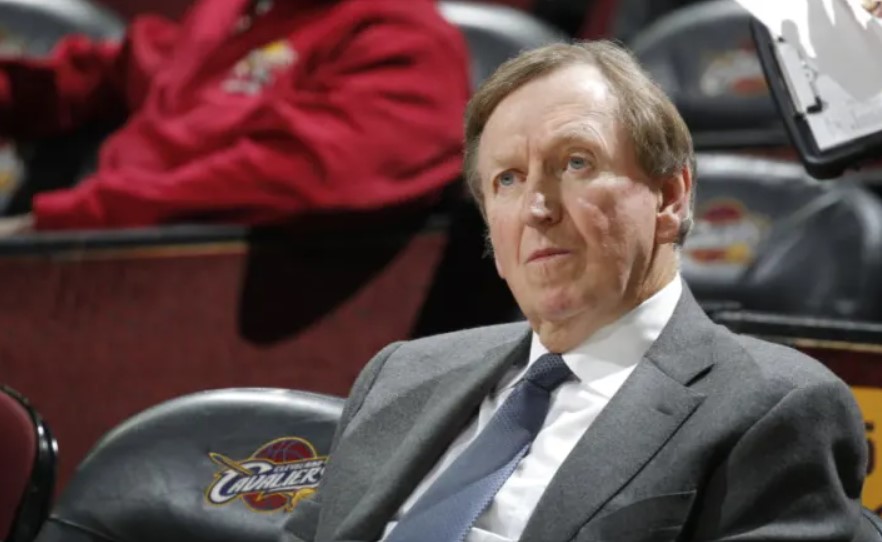
| Rod Thorn Contact Address, Phone Number, Email ID, Website | |
|---|---|
| Phone Number | (310) 273-6700 |
| House address (residence address) | Princeton, West Virginia, United States |
| Official Website | NA |
| Snapchat Id | NA |
| Whatsapp No. | NA |
| Personal No. | NA |
| Instagram Id | NA |
| Facebook Id | NA |
| Tinder Id | NA |
| Twitter Id | NA |
| TikTok | NA |
| Email Address | NA |
| Office Number | NA |
Some Important Facts About Rod Thorn:-
- Rod Thorn was born on 23 May 1941.
- His Age is 82 years old.
- His birth sign is Pisces.
See Also: Scotty McCreery Phone Number, Email ID, Address, Fanmail, Tiktok and More
